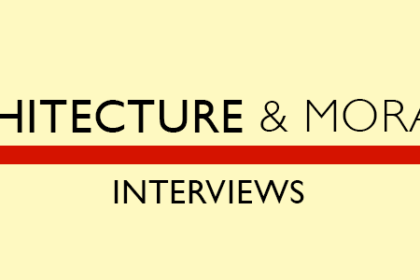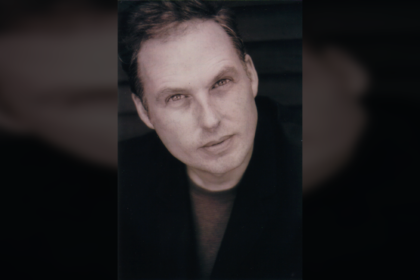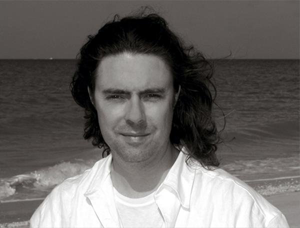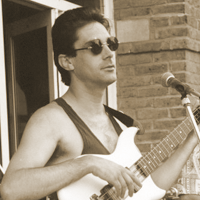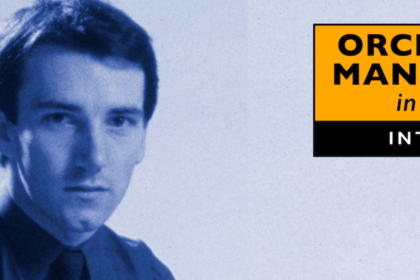Arriving in the latter part of 1980, Organisation followed up the ‘garage synthpop’ of Orchestral Manoeuvres In The Dark with an album of Gothic moods that included the classic ‘Enola Gay’.
In 2003 the album was reissued featuring remastered tracks taken from the original master tapes for the album. The reissue also boasted bonus tracks along with sleeve notes, photos and restored artwork. As part of the process of penning the sleeve notes, Paul Browne interviewed the band to collect their thoughts on the album then and now.
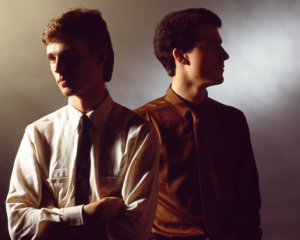
What do you recall about the writing and inspiration of the songs on Organisation?
Some of the songs on Organisation had actually been written prior to the first album. ‘Enola Gay’ had been written around about the time of the first album but we played it on tour. There are other songs that had been written earlier: Obviously ‘The Misunderstanding’, which was an old Id song, and ‘Motion and Heart’. ‘Motion and Heart’ was actually written the same week as ‘Enola Gay’.
What was it like working with Mike Howlett?
We worked with Mike Howlett because he’d done ‘Messages’ on the first album and we decided, although I didn’t like ‘Messages’ initially, it did have a better and more professional sound and we did need a regime of working with a producer so he’d actually push us to make a better sounding record.
We had very specific ideas about the songwriting and the instrumentation and had initially found it difficult to accept Mike Howlett’s suggestions. But, in hindsight, we realised that he had on the recording of the single version of ‘Messages’ made us sound more professional. And I think we were never happy with the naive garage sound of the first album. As soon as we finished with it we realised it was a rather naive and cheap and cheerful sound and although it didn’t sound too bad, we also didn’t want to go back and recreate that home-made garage sound. We did want to have a more professional sound.
So it was a chance to start over. Although we had a few songs left over, it was an opportunity to step forward: “We’ve done that, that’s what we did when we were teenagers. Now we step forward”. So subconsciously rather than consciously we adopted a different sound. Possibly this was because we recorded in a different studio other than our own. And I think as well that some of the elements we subconsciously soaked up from Joy Division – from working with them and also hearing their recordings – was where that kind of melancholy gothic vibe came into some of the material that we were writing for the second album. I think The Id version of ‘The Misunderstanding’ and the OMD version definitely show a Joy Division gothic feel to it.
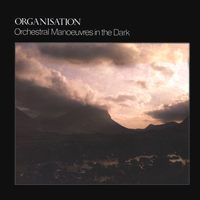
Why didn’t you want to record the entire album in the Gramophone Suite?
A few tracks we demoed at The Gramophone Suite – we had a 16 track 2 inch tape machine – what we could do was take our 16 track and put in on a 24 track machine. It actually gave us an opportunity to utilise the demos, if the arrangement was good enough we could just do some vocal overdubs straight over them, because the 2inch tape on the 16 track, put on the 24-track machine allowed us to find 8 more tracks, so basically we could do overdubs. Some of the songs were actually originally recorded at The Gramophone Suite and then overdubbed. In particular ‘Statues’ and ‘2nd Thought’ were originally recorded at The Gramophone Suite.
You had also recorded a version of ‘Enola Gay’ that was being in the process of being pressed, then you decided that you didn’t like the mix and wanted to re-record it.
I think if you probably played them both to me now, I’d be hard-pressed to tell the difference. But at the time I was actually unhappy with the version that we’d done.
It’s funny because I can actually remember walking to Advision Studios and Mike Howlett came driving by playing a tape in his car with, obviously, a cassette of ‘Enola Gay’ blaring out. I remember thinking to myself “This doesn’t sound too bad actually being played in a car!” (laughs).
‘Motion And Heart’ was re-recorded as a possible second single. Why did you choose that song?
I think we went into Amazon to try to re-record it with live drums. We were desperately trying to find a second single on this album because most of the rest of the album is quite dark. There really didn’t seem to be anything possibly other than ‘Motion And Heart’ that could be a crossover pop thing. We were looking for something that wasn’t on the album to be had.
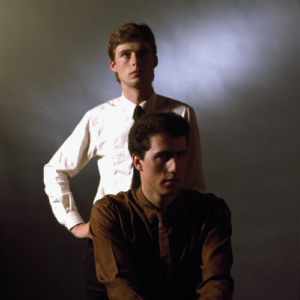
Were you happy with the final album?
I’m never happy with the final album. All I can say is that I was less unhappy than with the first album.
How do you feel about the album today?
It’s a very strong album and I think again in hindsight now that you can listen to it sandwiched between OMITD and Architecture & Morality, you can quite clearly see it as the intermediate album, it’s a stepping stone: It gets bigger, it gets darker, it gets more gothic. You can clearly see it as a move between the first and the third album.
Organisation has a very distinct sound to it and I find it unusual that that distinctive sound was never revisited as such. Perhaps the exception being Universal, where you have this quite epic, brooding sound.
Well, I mean it was possibly the unconscious mindset. Without even realising it, our heads were in a darker place. I mean even quite bright songs like ‘Promise’ have a kind of melancholic darkness to it – those strange echoey twisted synths all the way through. They give ‘Promise’, which otherwise has a very bouncy bassline and a cheerful melody, but all those kind of screaming synths give it a very unnerving eeriness! (laughs)
I mean ‘Enola Gay’ was an incredibly poppy song about a very dark subject and possibly, apart for ‘The More I See You’, there isn’t really anything on that album that is particularly bright and poppy.
That’s very true – ‘Enola Gay’ does sound a bit strange in the context of the rest of the songs on the album.
Yes, it does. I think some people must have heard ‘Enola Gay’ and bought the album and kind of gone “Uhh? What’s all the rest of this about?!!” (laughs).
Original interview by Paul Browne 2003
Revised text 25th February 2020

